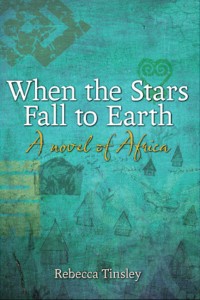
For the thousands of activists around the world working to end genocide and crimes against humanity, their personal journey and commitment often began with what Enough Co-founder John Prendergast has called "the Enough Moment" – that instant in which a person can no longer be content to sit by while atrocities are taking place, even halfway around the world.
For human rights activist and journalist Rebecca Tinsley, the seeds of that moment were planted when she was a six-year old, happily playing in her backyard. She noticed that one of her mother’s tea party guests had a series of numbers tattooed just above her wrist. Her curiosity led to her mother explaining the history of the Holocaust, prompting Tinsley to begin a life-long crusade to do her part in stopping genocide and crimes against humanity. As chair of the human rights organization Waging Peace and a trustee of the Carter Center United Kingdom, Tinsley’s work has shed light on the forgotten parts of the world where such violence continues to rage.
In a new novel, Tinsley has combined her passion for activism with the writing talents she honed while working at the BBC. When the Stars Fall to Earth is a gripping story and an unflinching account of the atrocities that continue to unfold in Darfur. Tinsley takes the reader beyond the headlines and deep into the hopes and fears of five young people struggling to survive in a land torn by conflict. Based on Sudanese citizens with whom Tinsley spent time while working on the ground in Sudan, Tinsley’s characters help put a human face on the suffering that has unfolded since 2003.
Literature and other works of art (like Lynn Nottage’s "Ruined," a play about the struggles of women in the Democratic Republic of the Congo) can play a critical role in inspiring more citizens to get involved in human rights issues. For even the most committed of activists, works of art can serve as reminders of the humanity behind relentless statistics and casualty estimates from conflicts around the world. Tinsley powerfully exposes the inhumanity of the crisis in Darfur by focusing on specific individuals who we grow to care about – like Hawa, a young Darfurian who is forced to grow up all too fast when she witnesses the killings of loved ones at the hands of the Janjaweed. Through Hawa’s story, Tinsley sheds light on the struggles of many Sudanese women who find themselves shunned when identified as rape survivors. In Hawa’s tentative steps toward self-renewal, and through the meaningful role she finds working as a nurse in a Chadian refugee camp, the reader gains an appreciation of the critical importance in empowering women to ensure healthy societies.
For veteran activists and those hoping to learn about the conflict in Darfur alike, When the Stars Fall to Earth is an excellent read that drives home the extent of the lives and culture lost in Darfur. For more information or to order copies of When the Stars Fall to Earth, visit www.StarsFallToEarth.com.

